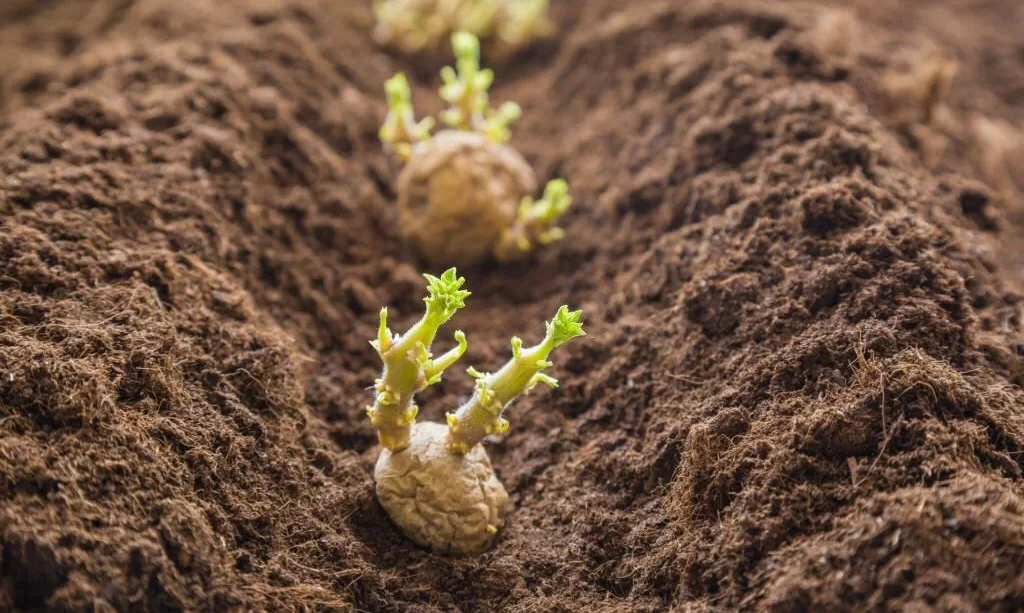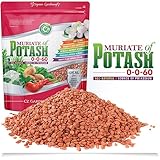Potatoes, with their versatility and ability to transform into countless delicious dishes, are a kitchen staple in Tennessee. But did you know that the timing of planting plays a crucial role in the quality of your potato harvest? In this guide, we’ll explore the world of potato cultivation in the Volunteer State, emphasizing the importance of when to plant for a successful potato crop. Whether you’re a seasoned gardener or just starting, understanding the right time to plant potatoes in Tennessee is essential for growing your own flavorful, fresh spuds.
- Pre-order now for the freshest seed potatoes! Estimated to arrive early March 2025, we will begin distribution as soon as they are available.***
- Always Non GMO and Carefully Sourced
- Start Your Journey Towards a Healthy, Plant-Based Living
- A Beautiful Addition to Your Home or Garden!
- Message Us For Anything, We Are More Than Happy To Help You
Tennessee’s Climate
Tennessee’s climate is as diverse as its scenic landscapes, ranging from the Appalachian Mountains in the east to the Mississippi River in the west. Understanding this climate diversity is key to knowing when to plant potatoes.
Tennessee experiences a mix of temperate and subtropical climates. The eastern part of the state tends to have cooler winters and milder summers due to its higher elevation, while the western regions have milder winters and warmer summers. This diversity in climate plays a significant role in determining the best time for planting.
To make the right planting decisions in Tennessee, you’ll need to identify your local climate zone within the state. The timing for potato planting varies across Tennessee, depending on whether you’re in the eastern or western regions. The duration of your growing season can also be influenced by these climate variations. By understanding the nuances of Tennessee’s climate, you can make informed choices about the best time to plant potatoes and ensure a successful potato crop.
Potato Varieties for Tennessee
Selecting the right potato variety is a fundamental step in growing a thriving potato crop in Tennessee. Fortunately, there are potato varieties well-suited to the state’s diverse climate. Here are some options to consider:
- Yukon Gold: Known for their golden, buttery flesh, Yukon Gold potatoes are versatile and perform well in Tennessee. They are great for mashing, roasting, or boiling.
- Red Pontiac: With thin red skins and waxy flesh, Red Pontiac potatoes are excellent for boiling and roasting. They often adapt well to Tennessee’s conditions.
- Kennebec: These all-purpose potatoes have smooth white skin and are known for their ability to produce high yields in various climates, making them a good choice for Tennessee.
- Ozette Fingerling: If you’re looking for something unique, consider Ozette fingerling potatoes. They are known for their distinctive flavor and texture and can grow successfully in Tennessee.
When selecting your potato variety, consider your local climate, the dishes you intend to prepare, and your personal taste preferences. The right choice will enhance your potato-growing experience.
- Pre-order now for the freshest seed potatoes! Estimated to arrive early March 2025, we will begin distribution as soon as they are available.***
- Always Non GMO and Carefully Sourced
- Start Your Journey Towards a Healthy, Plant-Based Living
- A Beautiful Addition to Your Home or Garden!
- Message Us For Anything, We Are More Than Happy To Help You
Spring Planting
In Tennessee, spring is the ideal time to plant potatoes. Typically, this means planting from late March to early April when the soil has warmed up and is workable. Spring planting allows your potatoes to take advantage of the warm months ahead, promoting healthy growth and a rewarding harvest.
To get started, prepare your garden bed by loosening the soil and adding organic matter for improved drainage and fertility. Plant your seed potatoes about 3 inches deep and 12 inches apart in rows, with approximately 2 to 3 feet of space between rows. Cover the seed potatoes with soil and provide them with an initial watering to settle the soil.
As the weather warms and daylight hours increase, your potato plants will emerge from the soil. Proper care during the growing season, including regular watering and hilling up soil around the plants, is essential for a successful potato crop. By planting in the spring and providing consistent care, you’ll be well on your way to enjoying fresh, homegrown Tennessee potatoes.
Care and Maintenance
Caring for your potato crop in Tennessee is essential to ensure a bountiful harvest. Here are some key care and maintenance tasks:
- Watering: Keep the soil consistently moist, but avoid overwatering to prevent rot. Deep watering, especially during dry periods, is crucial for healthy potato growth.
- Hilling: As your potato plants grow, they’ll benefit from “hilling”. This involves adding soil around the base of the plants to encourage more tuber formation. Hilling also helps protect the developing potatoes from exposure to sunlight, which can cause them to turn green.
- Fertilizing: Potatoes require proper nutrition for optimal growth. Consider using a balanced fertilizer and apply it as the plants start to grow and continue throughout the season. Follow the manufacturer’s recommendations for dosage.
- Pest and Disease Management: Keep an eye out for common potato pests like Colorado potato beetles and aphids. Implement organic pest control methods or consult your local agricultural extension service for guidance. Disease prevention is vital, too; avoid overhead watering to minimize the risk of fungal diseases.
By following these care and maintenance guidelines, you’ll provide your potato plants with the best conditions to produce a successful crop in Tennessee.
- PREMIUM QUALITY INGREDIENTS – Cz Garden Muriate of Potash is a water soluble, high purity, premium phosphate fertilizer for all indoor/outdoor flowers, lawn, and garden vegetables.
- POWERFUL POTASSIUM FERTILIZER highly concentrated potassium supplement designed to increase the density of your flowers and fruits. Potassium is a catalyst for carbohydrate metabolism and aids in the synthesis of proteins and amino acids. Adding high levels of potassium may lead to thicker, heavier flowers with massive yields.
- RESEALABLE, EASY POUR PACKAGING: Cz Garden 0-0-60 Muriate of Potash fertilizer comes sealed in a 5lb, heavy duty resealable pouch. Pour the necessary quantity with ease and store the rest for future use.
- COUNTRY OF ORIGIN: USA – Cz Garden fertilizers and soil amendments are manufactured in the USA from the highest quality ingredients. Buy with confidence!
- Cz Garden Organics is committed to developing Premium Grade custom soil amendment blends, fertilizers, and nutrients for your organic garden.
Harvesting and Storing Potatoes
The moment of harvest is an exciting one for any gardener. When the foliage of your potato plants begins to yellow and die back, it’s time to harvest your potatoes. Carefully use a shovel or fork to gently dig up the potatoes, taking care not to damage them.
After harvesting, allow the potatoes to air-dry for a few hours to cure the skins. This curing process helps toughen the skin and heal any minor cuts or bruises. Once they’re dry, store your potatoes in a cool, dark, and well-ventilated space, such as a root cellar or a cool basement. Ideal storage temperatures are around 40-45°F (4-7°C). This will help prevent sprouting and prolong their shelf life.
With proper care and attention to detail, you can enjoy your homegrown Tennessee potatoes for an extended period, savoring their fresh flavor in your favorite recipes. Whether mashed, roasted, or transformed into hearty stews, the taste of locally grown potatoes is a delicious reward for your gardening efforts.
Cooking and Enjoying Tennessee Potatoes
Cooking and enjoying the potatoes you’ve grown in Tennessee is a delightful experience. These fresh, homegrown spuds offer a unique flavor that elevates your dishes. Here are some delicious ways to savor your Tennessee potatoes:
- Mashed Potatoes: Whip up creamy mashed potatoes using butter, milk, and a pinch of salt. The rich flavor of Tennessee potatoes will shine through in every bite.
- Roasted Potatoes: Toss potato chunks with olive oil, your favorite herbs, and a sprinkle of salt, then roast them until crispy and golden. The result is a side dish that’s hard to resist.
- Potato Salad: Create a classic potato salad using your fresh harvest. The creamy texture and earthy taste of Tennessee potatoes will take this dish to the next level.
- Scalloped Potatoes: Layer potato slices with cheese, cream, and seasonings for a comforting scalloped potato casserole that’s perfect for family gatherings.
- French Fries: Cut your homegrown potatoes into fries and deep fry them for a delicious snack. Tennessee potatoes are known for making fantastic fries.
- Baked Potatoes: Enjoy baked potatoes with your favorite toppings, from sour cream and chives to cheese and bacon. The fluffy texture of Tennessee potatoes is perfect for baking.
Conclusion
Growing and savoring Tennessee potatoes is not just about gardening; it’s about cultivating a unique connection to your food. By understanding your local climate, selecting the right potato varieties, and planting them at the right time, you set the stage for a rewarding harvest. With diligent care, proper maintenance, and timely harvesting, you’ll enjoy fresh, local potatoes that can’t be matched in taste.
So, whether you’re an experienced gardener or a novice, embrace the journey of growing your own potatoes in Tennessee. The flavorful dishes you create from your homegrown spuds will not only delight your taste buds but also provide a strong sense of pride in nurturing your own food.






